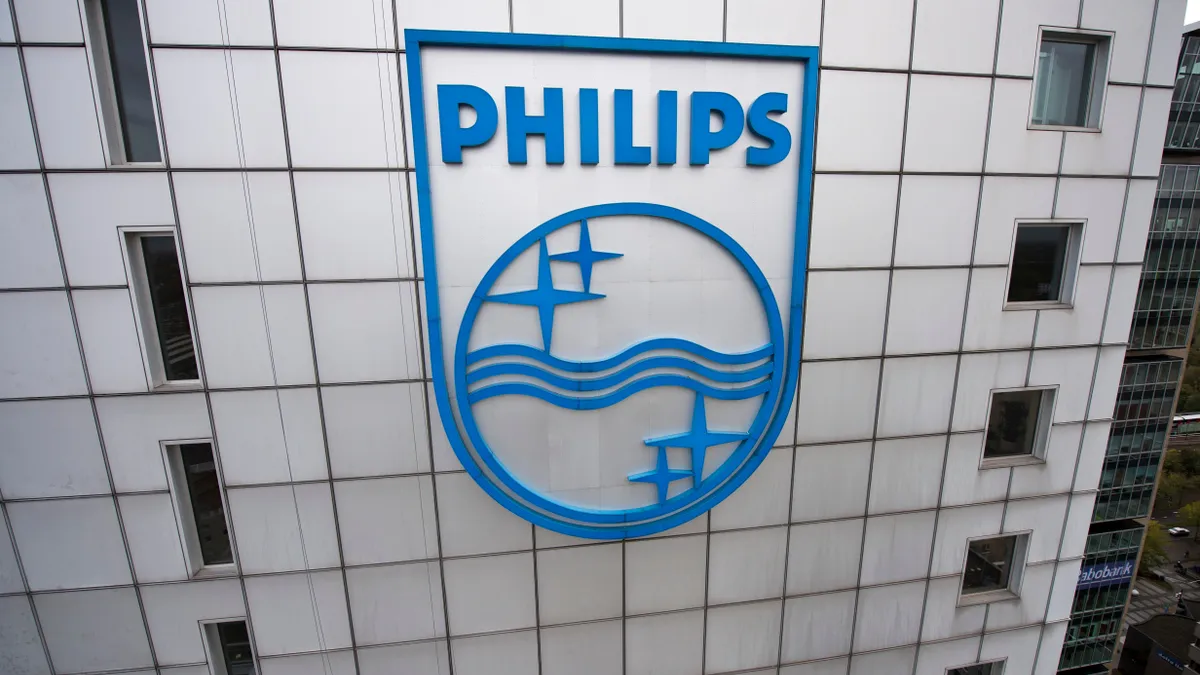Q1 insights
Despite a 6% increase in revenue from a year earlier, due to what Philips called improved supply chain dynamics, the botched recall of of millions of sleep apnea devices widened the company’s net loss as it made provisions for a restructuring and litigation tied to its recall.
A €575 million litigation provision was made in the quarter for the expected resolution of a class action lawsuit in the U.S. over the sleep apnea devices made by its Respironics division, Philips said.
“Resolving the Philips Respironics recall for patients remains our highest priority,” CEO Roy Jakobs said in a press release. “In the first quarter, we have recorded a provision in anticipation of a resolution of the economic loss class action in the US. This is an important step in addressing the litigation related to the recall.”
The Amsterdam-based device maker, the 8th largest in the world by revenue, reported a loss from operations of €583 million, mainly due to accelerated restructuring and legal costs.
“Resolving the Philips Respironics recall for patients remains our highest priority."

Roy Jakobs
Philips CEO
Jakobs said the company has reduced its workforce by about 5,400 jobs, after announcing 10,000 planned job cuts around the world. Philips in January said it would eliminate 6,000 more jobs in an effort to reduce costs, on top of 4,000 job reductions announced in October.
Philips said order intake growth was flat in the latest quarter, compared to a year ago, as double-digit increases in its diagnosis and treatment businesses were offset by a decline in the connected care businesses. Adjusted earnings before interest, tax and amortization rose to €359 million, from €243 million in the same quarter a year ago.
“Looking ahead, based on our solid performance in the quarter, our order book, and the ongoing actions to further improve execution, we are confident in our plan for the year 2023, acknowledging that uncertainties remain,” Jakobs said.
Respironics field action
Philips reported that it produced more than 95% of new replacement devices and repair kits required for remediation of registered devices, and said most sleep therapy devices had been sent to patients and home care providers. The company said it is focused on working toward a solution for the remaining 5% of registered devices, which are primarily ventilators. In February, Philips began recalling more than 1,200 DreamStation sleep apnea devices again after its work to fix foam insulation problems at the origin of the mass recall created a new problem that poses a serious risk to patients’ health.
Diagnosis & Treatment
Sales in the company’s Diagnosis & Treatment businesses increased 15% in the quarter, helped by supply chain improvements, with double-digit growth in ultrasound and image-guided therapy, and mid-single-digit growth in diagnostic imaging.
Order intake grew double digits in image-guided therapy and enterprise diagnostic informatics and mid-single digits in diagnostic imaging, the company said in a statement.
Connected Care
The Connected Care businesses’ comparable sales increased 3% in the quarter, driven by double-digit growth in hospital patient monitoring, offset by a decline in sleep and respiratory Care. Order intake declined double digits, following strong growth in the period between 2020 and 2022.
Shares in Philips rose 14%, or $2.73, to $21.76 in morning trading today.










